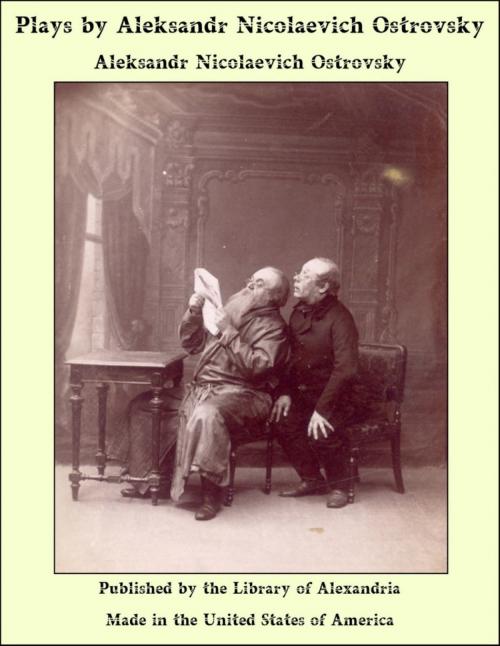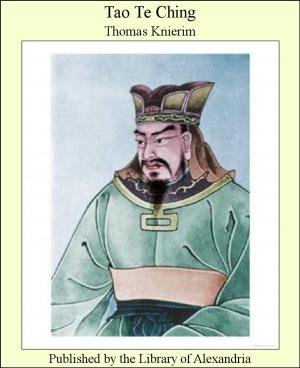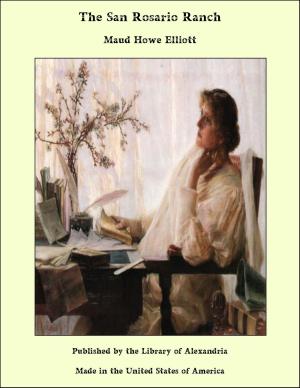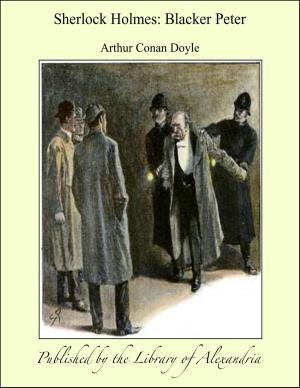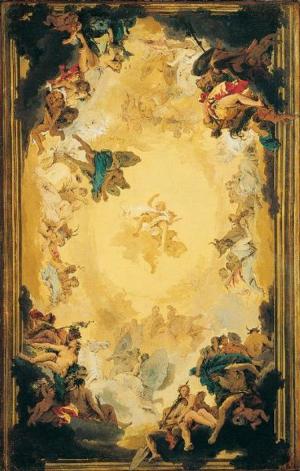Plays by Aleksandr Nicolaevich Ostrovsky
Nonfiction, Religion & Spirituality, New Age, History, Fiction & Literature| Author: | Aleksandr Nicolaevich Ostrovsky | ISBN: | 9781465597410 |
| Publisher: | Library of Alexandria | Publication: | March 8, 2015 |
| Imprint: | Language: | English |
| Author: | Aleksandr Nicolaevich Ostrovsky |
| ISBN: | 9781465597410 |
| Publisher: | Library of Alexandria |
| Publication: | March 8, 2015 |
| Imprint: | |
| Language: | English |
ALEXANDER NIKOLAYEVICH Ostróvsky (1823-86) is the great Russian dramatist of the central decades of the nineteenth century, of the years when the realistic school was all-powerful in Russian literature, of the period when Turgénev, Dostoyevsky, and Tolstoy created a literature of prose fiction that has had no superior in the world's history. His work in the drama takes its place beside theirs in the novel. Obviously inferior as it is in certain ways, it yet sheds light on an important side of Russian life that they left practically untouched. Turgénev and Tolstoy were gentlemen by birth, and wrote of the fortunes of the Russian nobility or of the peasants whose villages bordered on the nobles' estates. Dostoyevsky, though not of this landed-proprietor school, still dealt with the nobility, albeit with its waifs and strays. None of these masters more than touched the Russian merchants, that homespun moneyed class, crude and coarse, grasping and mean, without the idealism of their educated neighbors in the cities or the homely charm of the peasants from whom they themselves sprang, yet gifted with a rough force and determination not often found among the cultivated aristocracy. This was the field that Ostróvsky made peculiarly his own. With this merchant class Ostróvsky was familiar from his childhood. Born in 1823, he was the son of a lawyer doing business among the Moscow tradesmen. After finishing his course at the gymnasium and spending three years at the University of Moscow, he entered the civil service in 1843 as an employee of the Court of Conscience in Moscow, from which he transferred two years later to the Court of Commerce, where he continued until he was discharged from the service in 1851. Hence both by his home life and by his professional training he was brought into contact with types such as Bolshóv and Rizpolozhensky in "It's a Family Affair—We'll Settle It Ourselves."
ALEXANDER NIKOLAYEVICH Ostróvsky (1823-86) is the great Russian dramatist of the central decades of the nineteenth century, of the years when the realistic school was all-powerful in Russian literature, of the period when Turgénev, Dostoyevsky, and Tolstoy created a literature of prose fiction that has had no superior in the world's history. His work in the drama takes its place beside theirs in the novel. Obviously inferior as it is in certain ways, it yet sheds light on an important side of Russian life that they left practically untouched. Turgénev and Tolstoy were gentlemen by birth, and wrote of the fortunes of the Russian nobility or of the peasants whose villages bordered on the nobles' estates. Dostoyevsky, though not of this landed-proprietor school, still dealt with the nobility, albeit with its waifs and strays. None of these masters more than touched the Russian merchants, that homespun moneyed class, crude and coarse, grasping and mean, without the idealism of their educated neighbors in the cities or the homely charm of the peasants from whom they themselves sprang, yet gifted with a rough force and determination not often found among the cultivated aristocracy. This was the field that Ostróvsky made peculiarly his own. With this merchant class Ostróvsky was familiar from his childhood. Born in 1823, he was the son of a lawyer doing business among the Moscow tradesmen. After finishing his course at the gymnasium and spending three years at the University of Moscow, he entered the civil service in 1843 as an employee of the Court of Conscience in Moscow, from which he transferred two years later to the Court of Commerce, where he continued until he was discharged from the service in 1851. Hence both by his home life and by his professional training he was brought into contact with types such as Bolshóv and Rizpolozhensky in "It's a Family Affair—We'll Settle It Ourselves."
